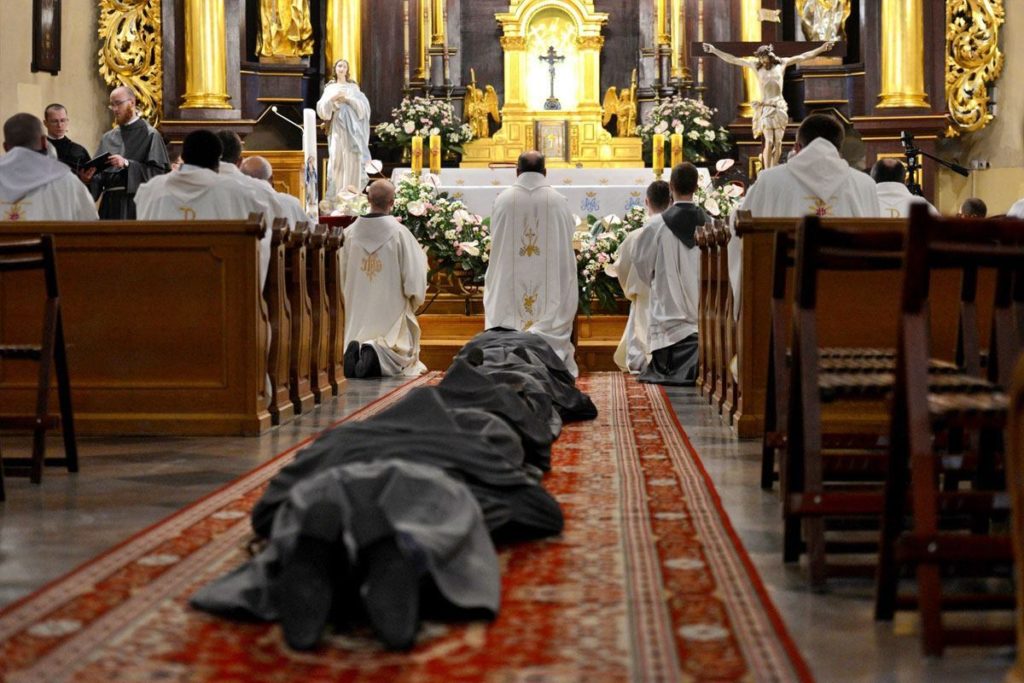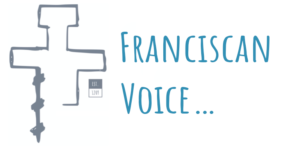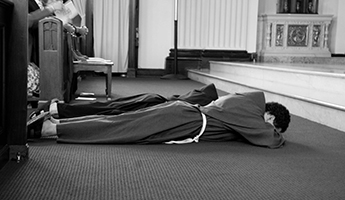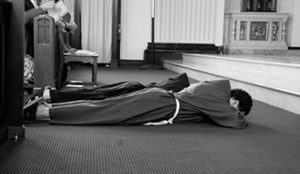The refrain of attempted consolation, emerging over the past two days, has been something along the lines of “we’re better than this” or “this isn’t who we are.” Some variation of that basic theme has been the music we’ve used to soothe our fractured psyche, resolved with appeals to our “better selves” and our “ideals and principles.” It’s the refrain that was heard by many political leaders on Wednesday night, baptized by Speaker of the House Nancy Pelosi with words from a prayer attributed to Saint Francis of Assisi, but which of course he never actually wrote.
Some, particularly on the platforms of social media, have begun to ask the question, “are we better than this?” Is this, in fact, not who we are? The answer, affirmed by Scripture and Tradition—including things Francis really did write—is no. We are not, in fact, better than this. These scenes of chaos and confusion, of violence and division, are an accurate reflection of precisely who we are. We are good. But we are also fallen.
That “good, but fallen” aspect of human nature (borrowing a formula from St. Augustine) is something the Church’s liturgy reminds us of every Friday when we pray Psalm 51 at the start of Morning Prayer. On this particular Friday, that which falls between Epiphany and the Baptism of the Lord, we are offered a Gospel passage that frames nicely Francis of Assisi’s—and thus Franciscanism’s—lived response to humanity’s fallenness.
Luke’s fifth chapter narrates the pericope of Jesus and the Leper. A man “full of leprosy” sees Jesus, prostrates himself before Him, and asks to be made clean. Jesus, being super Jesusey about it, readily obliges. The man recognizes his own leprosy, acknowledges his need for healing, and places himself humbly at the feet of Jesus. It’s this anonymous man’s response that Francis emulated in his own time and that functions as the basic outline of the Franciscan approach to living the Gospel.
First, Francis recognized his own leprosy, his own inner brokenness and desperate need for healing. In contemporary AA speak, the first step to fixing a problem is admitting that it exists. Convincing ourselves that we’re “better than” being broken, or that descents into the chaos of sin are anomalies that don’t reflect something real and visceral about “who we are,” is as naive as it is dangerous. Francis, in his authentic writings, is a straight-shooter when it comes to admitting the problem of human sin:
“Most High, Glorious God, enlighten the darkness of my heart.”
Prayer Before the Crucifix
“…because, by our own fault, we are disgusting, miserable, and opposed to good, yet prompt and inclined to do evil…
Rule of 1221, chapter XXII
“…with our whole heart…let us love the Lord God…Who did and does everything good for us, miserable and wretched, rotten and foul, ungrateful and evil ones.”
Ibid.
“…give us miserable ones the grace to do for You alone what we know You want us to do…”
Letter to the Entire Order
“…all creatures under heaven serve, know, and obey their Creator, each according to its own nature, better than you. And even the demons did not crucify Him, but you—together with them—have crucified Him and are still crucifying Him by delighting in vices and sins.”
Admonition V
Francis wasn’t all sunshine, birds, and daisies. He had a fairly dark view of humanity and he was candid about it. He understood the potential depths of the fallen aspect of our nature. “Surprised by what you’ve seen people do?” Francis might ask us. “‘Cause you shouldn’t be.”
He challenges with a stark truth: if you think the angry mob isn’t who we are, you’re delusional.

Then, having admitted the problem and his fundamental inability to do anything about it if left to his own devices, Francis submits himself to a higher power. He humbles himself before the Almighty, prostrates himself in submission to the Most High and Glorious. This is the act every friar still does today, when we make our solemn profession of vows. Consecrating our lives to God, handing over our very selves to Christ, we lay prostrate before the altar as we invoke the assistance of the Saints to transcend our fallen nature and pursue a life fundamentally oriented toward holiness.
Luke’s story ends by telling us that the leper apparently ignored Jesus’ directive to not tell anyone about what had happened; leper colonies, it seems, are like sewing circles. Francis emulates this too. Having experienced the healing of Christ, he goes and embraces the other lepers. “I know who you are,” Francis says to them, “but let me show you who Christ can make you become!”



